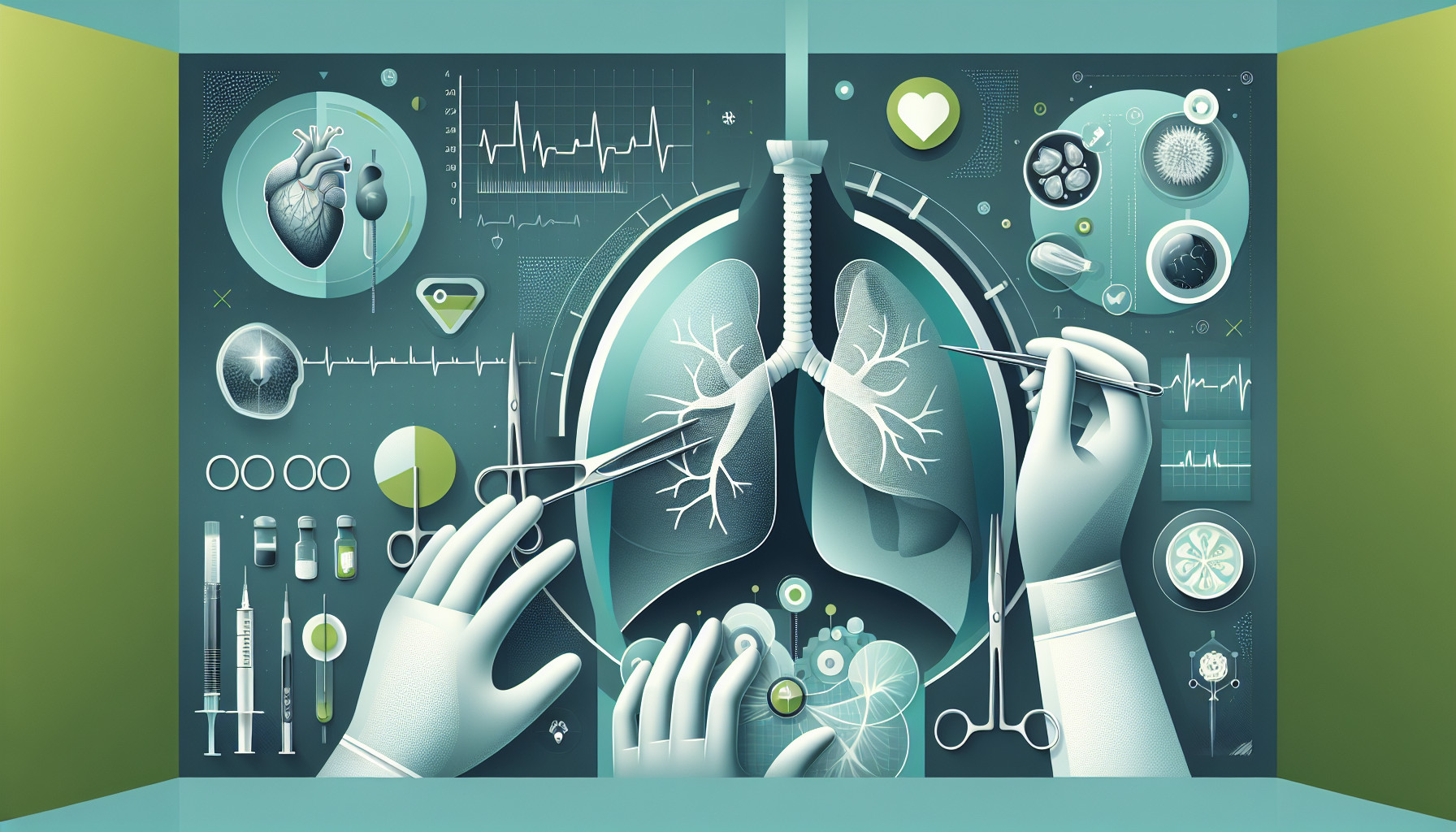Our Summary
Without the specific details of the research paper, it’s a bit challenging to give a precise summary. However, based on the keywords provided, we can infer that the paper is about the role of antibiotics and antifungal medications in the prevention or treatment of infectious diseases, particularly related to the lungs.
The paper appears to delve into laboratory research and science, as well as clinical research and practice, to understand how these medications fight against infections, with a special focus on fungal agents. It might also discuss specific lung diseases caused by these infections.
The paper could also touch on the implications of these infections and treatments for patients undergoing lung transplantation. Finally, it might explain the pathology and histopathology of these lung diseases, which means it would examine the disease’s progression and the microscopic changes that occur in body tissues because of the disease.
FAQs
- What kind of research is being conducted on lung transplantation and pulmonology?
- What is the role of antibiotics and antifungal in lung transplant procedures?
- What is the connection between lung disease and infectious agents?
Doctor’s Tip
One helpful tip a doctor might tell a patient about lung transplant is to follow a strict medication regimen as prescribed. This may include immunosuppressants to prevent rejection of the new lung, as well as antibiotics or antifungals to prevent infections. It is important to take these medications consistently and at the correct times to ensure the success of the transplant and overall health of the patient.
Suitable For
Patients who are typically recommended for lung transplant are those who have end-stage lung disease that is not responding to other treatments, such as medications or oxygen therapy. This includes conditions such as cystic fibrosis, chronic obstructive pulmonary disease (COPD), idiopathic pulmonary fibrosis, and pulmonary hypertension. Patients must also meet certain criteria, such as being in good overall health aside from their lung condition, having a strong support system, and being willing to comply with post-transplant medications and follow-up care.
Timeline
- Before lung transplant:
- Initial evaluation: The patient undergoes a thorough evaluation by a transplant team to determine if they are a suitable candidate for a lung transplant.
- Waiting for a donor: Once deemed eligible, the patient is placed on the transplant waiting list and waits for a suitable donor match.
- Pre-transplant care: The patient receives medical care and support to manage their lung disease and overall health while awaiting a transplant.
- Surgery preparation: As the transplant date approaches, the patient undergoes pre-operative tests and consultations to prepare for the surgery.
- After lung transplant:
- Surgery: The patient undergoes the lung transplant surgery, during which their diseased lung(s) are removed and replaced with healthy donor lung(s).
- Recovery: The patient spends time in the hospital recovering from the surgery and monitoring for any complications.
- Post-transplant care: After discharge from the hospital, the patient requires ongoing medical care, including medication to prevent rejection of the donor lung(s) and management of any potential complications.
- Rehabilitation: The patient may undergo rehabilitation to regain strength and improve lung function following the transplant.
- Follow-up care: The patient continues to receive regular follow-up care from their transplant team to monitor their lung function, overall health, and medication regimen.
What to Ask Your Doctor
- Am I a candidate for a lung transplant?
- What are the risks and benefits of a lung transplant for my specific condition?
- How long is the wait time for a donor match?
- What is the success rate of lung transplants at this hospital?
- What is the recovery process like after a lung transplant?
- What medications will I need to take after the transplant?
- What are the potential complications or side effects of a lung transplant?
- How often will I need to follow up with the transplant team after the surgery?
- Are there any lifestyle changes I will need to make after a lung transplant?
- What are the long-term outcomes and prognosis for patients who undergo a lung transplant?
Reference
Authors: Shallal A, Tibbetts R, Alangaden G, Williams J. Journal: Am J Transplant. 2021 May;21(5):1975-1977. doi: 10.1111/ajt.16520. PMID: 33939276
